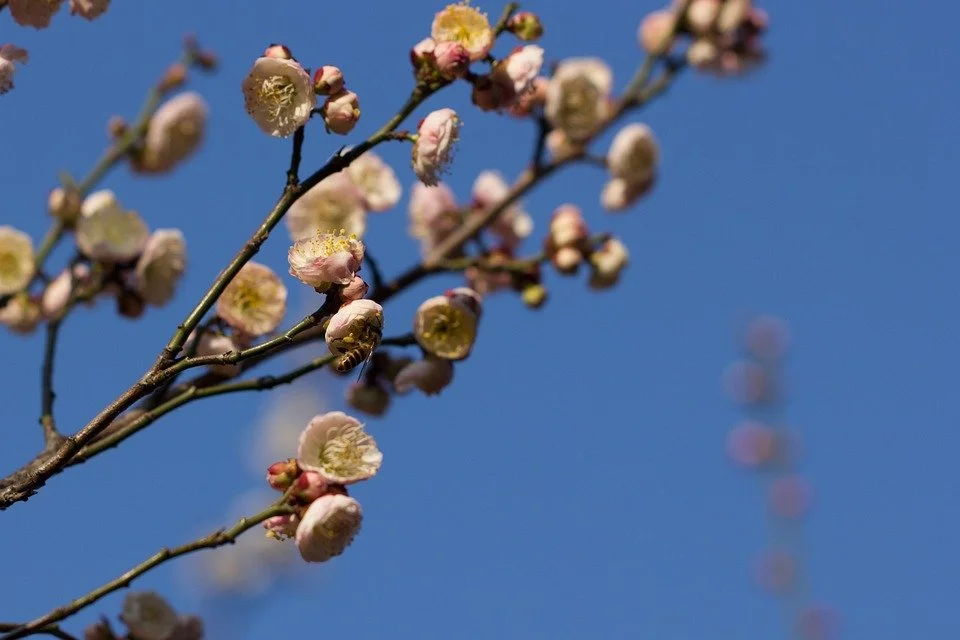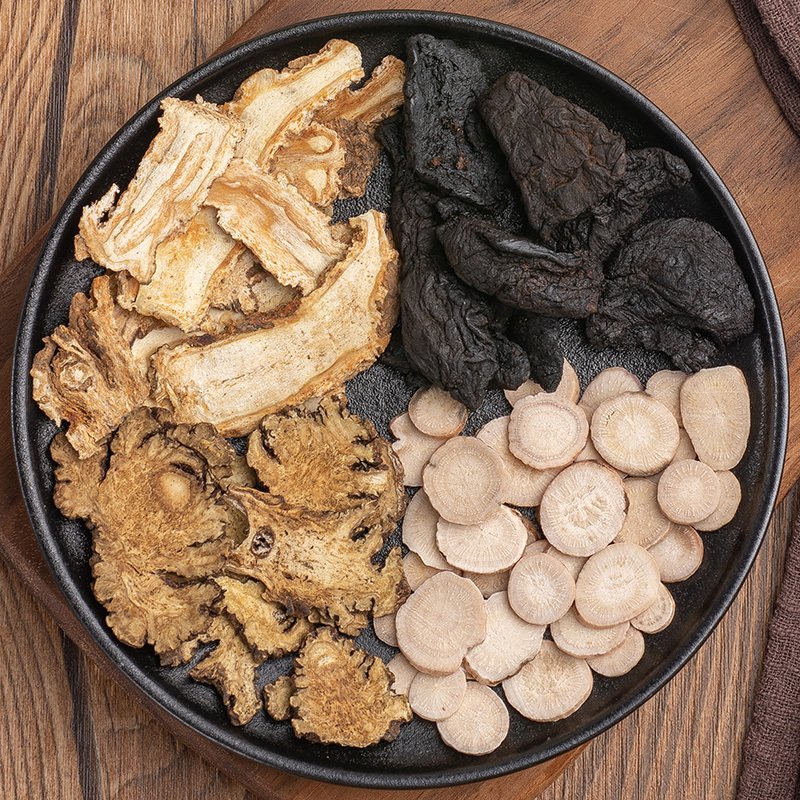Liver - 肝
Written by: Zoey Gong & Tiffany Yeung
The human body is a microcosm of our environment. In TCM, Spring is the season of the Liver, the color green falls into the Liver Meridian. It is no coincidence that the seasonal dietary suggestion is to consume what is most readily available in this season, green leafy vegetables and wild weeds. Greens are rich in potent antioxidants and rich in chlorophyll that help accelerate rejuvenation of the liver.
The Liver has over 500 vital roles in the body. It is responsible for metabolizing everything we put into our body, the good, the bad, and everything in between. Its’ health = our health. In TCM, the Liver has extensive roles; any imbalance can affect other organs, physical and psychological/emotional health too. Emotional regulation, promotion of digestion and absorption, circulating Qi, Blood and body fluid, and reproductive function are all affiliated with the Liver.
In short,
LIVER FLOW= QI FLOW= BLOOD FLOW= EMOTIONS FLOW
… and we want all these to flow as seamlessly as possible.
While Spring is the season of the Liver where energy rises up and outward, for those with Liver imbalances, symptoms related to the Liver may begin to flare.
Liver Qi stagnation:
The Liver is responsible for the free flow of Qi in the body. Stress, high toxic burden, depression, frustration, anger, resentment, excessive anxiety, and fear can lead to Liver Qi stagnation, and vice versa. The Liver spreads Qi to the Spleen, Stomach, and Gallbladder. A stagnated Liver may invade say, the Spleen, causing digestive discomforts, such as abdominal distention & reflux. Gently nourishing the Liver and supporting our digestion is vital.
Liver Qi stagnation symptoms:
Distention in hypochrondrium
Bloating
Stomach distention
Depression
Anxiety
Painful and irregular menses
Tender breasts before period
Feeling “stuck”
Pain
Jasmine flower helps regulate Qi, release stagnant emotions due to Liver Qi stagnation, support the Spleen in digestion and fluid metabolism. It can provide relief for individuals experiencing bloating or abdominal discomfort/pain and depression due to this pattern. Rose harmonizes the liver, aiding regulation of both Qi and Blood, dispersing any blood stasis/stagnation. Anthyocyanins in Rose have been shown to have anti-inflammatory skin properties!
Jasmine Rose Tea 茉莉玫瑰花茶
Ingredients:
8 buds Dried Jasmine (茉莉花)
10 buds Dried Roses (玫瑰花)
2 cups of water
Instructions:
Add both flowers into a pot of water, bring to a boil then turn to low heat and simmer for 10-15 minutes.
Liver Blood deficiency:
The Liver is in charge of storing blood, it opens to the eyes, nourishes the nails, hair, sinews, as well as affects Women’s menses. Poor diet, malnutrition due to undereating or Spleen deficiency, severe emotional stress, and excessive physical exertion could all lead to Liver Blood deficiency. Blood brings nutrients to the body, when Liver Blood is insufficient, tendons are not nourished leading to symptoms of spasms, numbness and tightness.
Liver Blood deficiency symptoms:
Weak, rigid, stiff muscles
Joint pain
Brittle nails
Thinning hair
Scanty or absent periods
Insomnia
Disturbed sleep
Anxiety
Dry skin and hair
Jujube dates are the more commonly known herb used for Blood building, but did you know that it does so by stimulating erythropoietin (EPO), a hormone required for blood production in the human body! In TCM, both Mulberry and Longan Fruit are great herbs for Tonifing the Blood whilst nourishing the Yin. Longan fruit can calm the spirit, anxiety, and improve insomnia by nourishing the Blood and building Qi. Mulberry, on the other hand, is rich in Iron which promotes the production of red blood cells. This is a great tea to enjoy after your period, Ladies!
Mulberry Dates Goji Tea 桑椹紅棗枸杞茶
Ingredients:
2 cups water
1tbsp Dried Mulberries
3 Jujube Dates
1 tbsp Goji Berries
Instructions:
Place all ingredients into the water, bring water to a boil, and simmer on low heat for 10 mins.
A classic decoction with earliest records dating back to the Late Tang Dynasty ( approx. 1000 years ago). Siwutang is classically used as a Blood rebuilder and to treat various gynecological disorders such as menstrual irregularities, discomfort, and dysmenorrhea. Danggui and Chuanxiong can regulate the Qi of Blood, dispelling and preventing any blood stasis that can develop from Blood deficiency. Whilst, Baishao and Shudihuang act to Tonify Blood. Recent studies have shown that Siwutang, can improve ovarian follicular maldevelopment, the herb Chuanxiong even exhibited skin regeneration effects in eczema and psoriasis. But make no mistake this decoction is suitable for both Women and Men!
SiWuTang (Four substance decotion) 四物湯
(Serving size: 3-4)
Instructions:
15g Baishao (白芍)White Peony Root
15g Shudihuang(熟地黃)Prepared Rehmannia
15g Danggui (當歸)Angelica Root
15g Chuanxiong (川芎)Sichuan Lovage Root
2.5-3L water
3-4lb Chicken (optional)
Equipment:
Ceramic, Claypot, or Glass pot
Instructions:
Soak herbs in water for 15-30mins, then rinse with clean water
Place optional protein and herbs into water in a pot and bring to a boil, leave on medium-high heat for 15-20mins
Simmer on medium-low heat for 1hr
Photo credit: Baidu
Liver Fire rising:
Yang rises with the rising temperatures during Spring, when Liver Qi is rising in excess this could cause Liver Fire. This heat force surges upwards leading to symptoms that present in the upper quadrant of the body Diet is a major cause of Liver Fire, processed, greasy foods, carbonated drinks, excessive alcohol, as well as, “Hot” nature foods could fuel Liver Fire.
Liver Fire rising symptoms:
Easily angered, irritability
Tinnitus
Bitter taste in mouth
Redness of cheeks
Acne, pimples
Irregular menses
Dry eyes
Thirst
Temporal headaches
Leafy greens and “Cooling” foods are of the essence here, for example, Mung Beans, Job’s Tears, dandelion, asparagus mung bean sprouts,tofu and seaweed. Seaweed is rich in minerals and antioxidants, it has been shown that certain types of seaweed can inhibit hepatic inflammation. It is high in fibre content with binding qualities are effective in aiding Liver detoxification. Cucumbers, hydrating and cooling in nature, need we say more? Below is a recipe from one of the eBooks featured on our website, “Soothing your Liver Qi Stagnation”. To purchase click HERE.
Wakame & Cucumber Salad
(Serving size: 2 people portion side dish)
Ingredients:
• 1 medium cucumber, washed & thinly sliced
length-ways with a peeler
• Approximately 12 pieces of dried wakame,
pre-soaked & rehydrated, cut into smaller
pieces if they expand
• 1 tablespoon brown rice vinegar
• 1 tablespoon Chinese/Japanese dark
vinegar
• 1 tablespoon sesame oil
• 1 tablespoon soy sauce
Instructions:
1. The ratio of cucumber and wakame is up
to you, half of each in this salad is a good
place to start.
2. Soak the wakame and then prepare the
cucumber.
3. In a small bowl mix the vinegars, sesame oil
and soy sauce to make a dressing.
4. Assemble the wakame and cucumber slivers
in a bowl/dish, then pour the dressing on
top.
5. Serve as a side with any main meal.
Energetically, Celery is “cooling” entering the Lung, Spleen and Liver meridian. It is high in fiber, packed with Vitamin C, as well as active compounds that help lower blood pressure and cholesterol. With hepatoprotective effects, it is the perfect perfect vegetable for the Liver.
Celery Furikake Salad 芹菜配香鬆沙拉
(Serving size: 2)
Ingredients:
4-5 stalks of Celery
1 tbsp Furikake
1-2 tbsp Extra Virgin Olive Oil
Sea salt (to taste)
Optional: Goji Berries
Instructions:
1) Wash and chop celery into thin slices, set aside in serving bowl
2) Drizzle EVOO onto celery, add sea salt and toss evenly
3) Sprinkle furikake on top and add optional goji berries to serve





